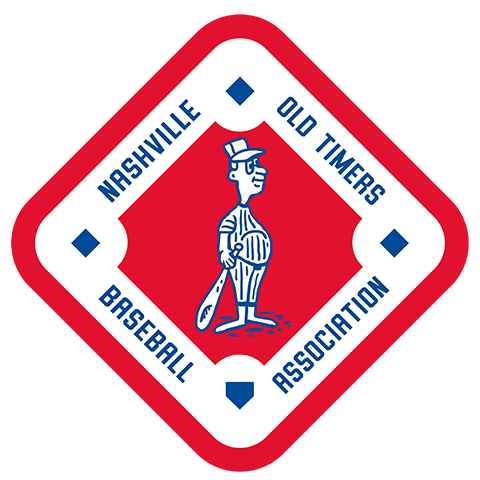Nashville’s ball club was expected to match the success of the 1916 season by capturing the Southern Association pennant for a consecutive time. Journeyman pitcher Tiller “Pug” Cavet, who played for Detroit in 1911, 1914, and 1915, was added to the starting mound crew as team magnates sought to replace Rube Kroh, who was placed on waivers, and Tom Rogers, who had moved on to the St. Louis Browns.
Bob Pigue of the Nashville Banner exalted the new pitching staff, though he was unfamiliar with which players were pitchers.
“With Taylor added to the list, and the securing of Hub Perdue (Perdue did not sign with Nashville, choosing instead to go to rival Chattanooga) still within the range of possibility, the pitching staff of the Volunteers continues to loom up as one of the best in the league. For with Pug Cavet and Tod Sloan already signed, and with Ellis still a Vol, these five birds would be hard to beat – Perdue, Taylor, Cavet, Ellis and Sloan (Sloan was a right-fielder and joined Rogers at St. Louis), with Cavet the left-handed entry.”[1]
Cavet had an unimpressive record of 14-23 for the Mobile Sea Gulls in 1916, but Pigue explained why he did not have success there.

“Cavet was undoubtedly one of the best pitchers in the league last season, but was with the Mobile Gulls, a tail-end aggregation which was never able to get him any runs, and which resulted in his downfall on many occasions, after he had held the opposition to a couple of runs.”[2]
He pitched in one fateful game for Mobile against Nashville on June 18, when tragedy struck. Gulls third baseman, Johnny Dodge, who had played for Nashville the previous season, leaned into a pitch by Tom Rogers and was struck in the face. Dodge died the next day. Cavet pitched the entire game for Mobile, holding Nashville to one hit in the Gulls’ win, 6-0.[3]
Vols manager Roy Ellam played Cavet in the infield often during spring training, and he was a capable hitter, but he was destined to begin the season on the mound. He pitched three innings against Washington in an exhibition game on March 28 in Nashville, allowing the Senators four runs. Facing future Hall of Famer Walter Johnson for the first three innings, Nashville lost, 6-3.[4]
On April 13, 1917, Nashville’s opening day at Sulphur Dell, Birmingham walloped the Vols 9-1, following a pre-game parade that stretched three city blocks. Even though the game-time temperature was a comfortable 55 degrees, only 2,851 fans attended, the lowest opening day attendance of all teams in the Southern Association.
Cavet started and took the loss. He was burned for 16 hits, seven for doubles, as the Barons had 23 total bases. He received no help from his teammates, who appeared unready for the game even though they had spoiled the Barons’ own season kick-off by winning 9-2 the night before.
His performance was nothing to write home to mother about, either, as he had one wild pitch, hit two batters, and walked. He did manage to gain three strikeouts of no consequence to the final score.
He lost his next start, but against Chattanooga on May 2, he won his own game when he lofted a long fly ball to the outfield in the second inning. Lookouts centerfielder Frank Kitchens, normally handling catching duty, dropped it for a triple. Tommy Sheehan sacrificed Cavet home on a squeeze play for the only score of the game. Cavet held Chattanooga to five hits.
Two weeks later, Kitchens was named manager of Mobile, replacing Matty McIntyre.
On July 7 in Nashville, Cavet won his own game by driving in the winning run in the ninth inning of a 5-4 complete game victory over Mobile.
On August 2 in Birmingham, Ellam called on Cavet to hold down the fort in Rickwood Field’s right field in a doubleheader. He collected a single in the second game and had four putouts on the day.
He tossed a shutout against Little Rock on August 27, allowing only four hits. In the second inning with Nashville ahead, 1-0, he helped his own cause again. Leading off the second inning, he reached first base on a bunt just beyond the outstretched glove of Travelers pitcher Hank Robinson. Nashville scored twice, then added a run in the sixth inning The Vols won, 5-0
In the second game of a doubleheader against Birmingham, Cavet allowed only two hits in the seven-inning game. The Vols won, 3-0.
In the last game of the season on September 15, Cavet was roughed up by Memphis. He started on the mound for the Vols, lasting 4 1/3 innings but gave up 10 hits and five runs in Nashville’s 6-3 win to seal his team’s fifth-place finish in league standings with a 78-73 record.
His season totals were very respectable. He led the team’s pitching staff with 21 wins and had a 2.67 ERA in his ninth season of minor league ball. He returned to Mobile the next season and won 29 games for Indianapolis in 1919.
On September 28, 1919, he became one of the few pitchers in professional baseball history to record a loss without throwing a pitch. Cavet appeared in relief in the bottom of the ninth inning of a tie game between Indianapolis and Milwaukee with two outs and a man on third base. The winning run scored when Cavet was called for a balk while winding up to throw his first pitch. The final score was Brewers 7, Indians 6.[5]
The 6’3”, 175-pound Cavet spent 12 more years in the minor leagues, even returning to the Southern Association with New Orleans in 1924 and Atlanta in 1925 and 1926. He spent his last two seasons in baseball as player-manager of the Tuscon Cowboys (Arizona State League – Class D).
In 22 minor league seasons, he played in 739 games, winning 291 games and losing 243.
According to his World War II Draft Card Registration in 1942, he worked for the Works Progress Administration (WPA) in the Civil Aeronautics Administration.
Cavet, born in McGregor, Texas on December 26, 1899, to Henry Jackson Cavet, Sr. and Emma Earl née Cobb, had one sister and five brothers. He died on August 4, 1966, at the age of 76 in San Luis Obispo, California, where he is buried in Odd Fellows Cemetery. His wife, Albertina May née Steele, lived to be 105 before passing away in 1996.
Due to a dynamite cap explosion during his childhood, Cavet played his entire baseball career with only one eye.[6]
Sources
Ancestry.com
Baseball-reference.com
Indianapolis Star
Newspapers.com
Nashville Banner
Nashville Tennessean
Paper of Record
Sabr.org
The Sporting News Baseball Players Contract Cards Collection
Notes
[1]Bob Pigue, “Scrambled Sports,” Nashville Banner, January 29, 1917, 7.
[2] Pigue, “The Sportograph,” Nashville Banner, March 7, 1917, 10.
[3] Vols Give Weird Exhibition and Are Blanked by Gulls,” Nashville Tennessean, June 19, 1916, 8.
[4] Pigue, “Walter Johnson Finds ‘Em Easy,” Nashville Banner, March 29, 1917, 14.
[5] Manning Vaughn, “Indians Finish A. A. Season in Fourth Place,” Indianapolis Star, September 29, 1919, 11.
[6] “Obituaries,” The Sporting News, August 20, 1966.
© 2021 by Skip Nipper. All Rights Reserved.



